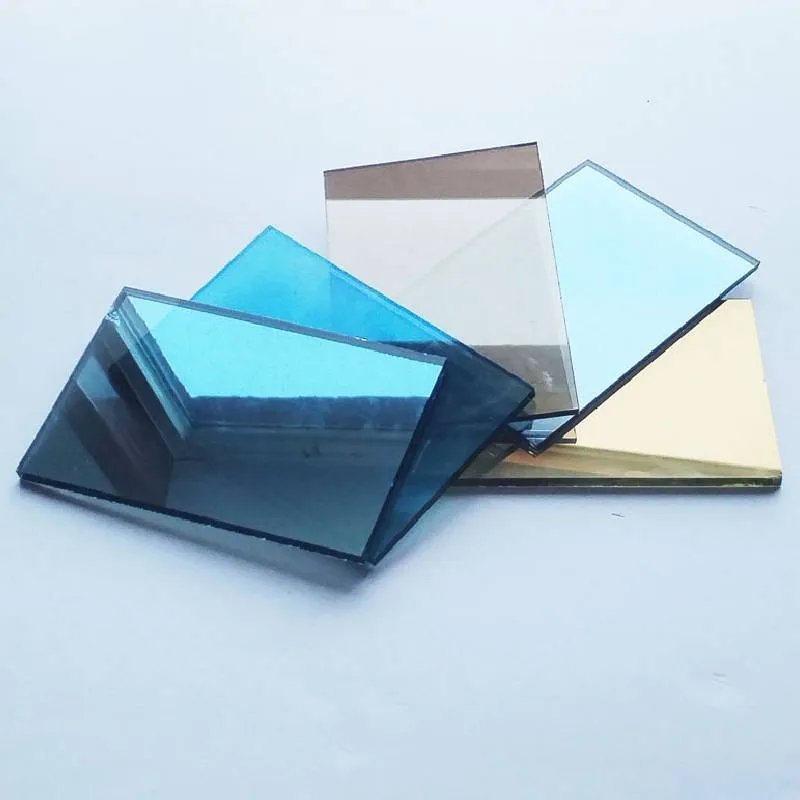The Advantages and Applications of IR Reflective Glass
Infrared (IR) reflective glass is a specialized type of glass designed to reflect infrared radiation while allowing visible light to pass through. This unique property makes it an invaluable material in various industries, offering solutions for energy efficiency, comfort, and aesthetics. As the demand for sustainable building practices and energy conservation continues to rise, IR reflective glass has emerged as a key player in both architectural and automotive applications.
The Advantages and Applications of IR Reflective Glass
Additionally, the use of IR reflective glass can enhance occupant comfort. By minimizing the heat that enters a building, the temperature remains more consistent throughout the day. This is particularly advantageous in spaces that require specific climate controls, such as museums, art galleries, and commercial spaces housing sensitive equipment. The ability to maintain a stable environment not only improves comfort for residents and employees but also protects valuable assets from damage caused by temperature fluctuations.
ir reflective glass
The aesthetic appeal of IR reflective glass cannot be overlooked. It is available in a variety of tints and finishes, allowing architects and designers to create stunning visual effects while maintaining a modern look. Buildings featuring this type of glass can achieve a sleek, contemporary appearance, contributing to urban aesthetics. Furthermore, the reflective nature of the glass can help buildings blend harmoniously with their surroundings, reducing visual impact and enhancing the character of an environment.
In the automotive industry, IR reflective glass is increasingly being utilized in vehicles to improve passenger comfort and safety. By blocking heat without darkening the interior, this type of glass allows for a more pleasant driving experience, even on the hottest days. Moreover, it can help protect the vehicle's interior materials from fading and deterioration caused by prolonged exposure to sunlight. As consumer demand for energy-efficient vehicles rises, automakers are incorporating IR reflective glass to enhance fuel efficiency and overall vehicle performance.
Beyond the architectural and automotive sectors, IR reflective glass also finds applications in the production of solar panels and energy-efficient windows. In photovoltaic glazed modules, IR reflective glass can help improve energy conversion efficiency by minimizing heat loss. This application is crucial as the world transitions towards renewable energy sources and seeks innovative solutions to harness solar power more effectively.
In summary, IR reflective glass stands out as a versatile and beneficial material with a wide array of applications. Its ability to reflect infrared radiation while allowing visible light to pass through offers significant advantages in energy efficiency, occupant comfort, aesthetic appeal, and innovative technology in various industries. As society continues to prioritize sustainability and energy conservation, the role of IR reflective glass will likely grow, paving the way for greener building practices and smarter products. Whether in residential buildings, commercial spaces, or vehicles, IR reflective glass represents a forward-thinking solution that aligns with the evolving needs of a modern world.
 Afrikaans
Afrikaans  Albanian
Albanian  Amharic
Amharic  Arabic
Arabic  Armenian
Armenian  Azerbaijani
Azerbaijani  Basque
Basque  Belarusian
Belarusian  Bengali
Bengali  Bosnian
Bosnian  Bulgarian
Bulgarian  Catalan
Catalan  Cebuano
Cebuano  Corsican
Corsican  Croatian
Croatian  Czech
Czech  Danish
Danish  Dutch
Dutch  English
English  Esperanto
Esperanto  Estonian
Estonian  Finnish
Finnish  French
French  Frisian
Frisian  Galician
Galician  Georgian
Georgian  German
German  Greek
Greek  Gujarati
Gujarati  Haitian Creole
Haitian Creole  hausa
hausa  hawaiian
hawaiian  Hebrew
Hebrew  Hindi
Hindi  Miao
Miao  Hungarian
Hungarian  Icelandic
Icelandic  igbo
igbo  Indonesian
Indonesian  irish
irish  Italian
Italian  Japanese
Japanese  Javanese
Javanese  Kannada
Kannada  kazakh
kazakh  Khmer
Khmer  Rwandese
Rwandese  Korean
Korean  Kurdish
Kurdish  Kyrgyz
Kyrgyz  Lao
Lao  Latin
Latin  Latvian
Latvian  Lithuanian
Lithuanian  Luxembourgish
Luxembourgish  Macedonian
Macedonian  Malgashi
Malgashi  Malay
Malay  Malayalam
Malayalam  Maltese
Maltese  Maori
Maori  Marathi
Marathi  Mongolian
Mongolian  Myanmar
Myanmar  Nepali
Nepali  Norwegian
Norwegian  Norwegian
Norwegian  Occitan
Occitan  Pashto
Pashto  Persian
Persian  Polish
Polish  Portuguese
Portuguese  Punjabi
Punjabi  Romanian
Romanian  Russian
Russian  Samoan
Samoan  Scottish Gaelic
Scottish Gaelic  Serbian
Serbian  Sesotho
Sesotho  Shona
Shona  Sindhi
Sindhi  Sinhala
Sinhala  Slovak
Slovak  Slovenian
Slovenian  Somali
Somali  Spanish
Spanish  Sundanese
Sundanese  Swahili
Swahili  Swedish
Swedish  Tagalog
Tagalog  Tajik
Tajik  Tamil
Tamil  Tatar
Tatar  Telugu
Telugu  Thai
Thai  Turkish
Turkish  Turkmen
Turkmen  Ukrainian
Ukrainian  Urdu
Urdu  Uighur
Uighur  Uzbek
Uzbek  Vietnamese
Vietnamese  Welsh
Welsh  Bantu
Bantu  Yiddish
Yiddish  Yoruba
Yoruba  Zulu
Zulu 

